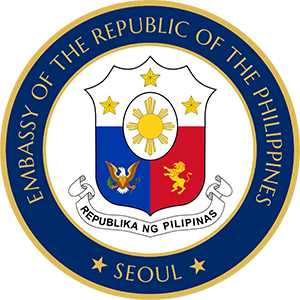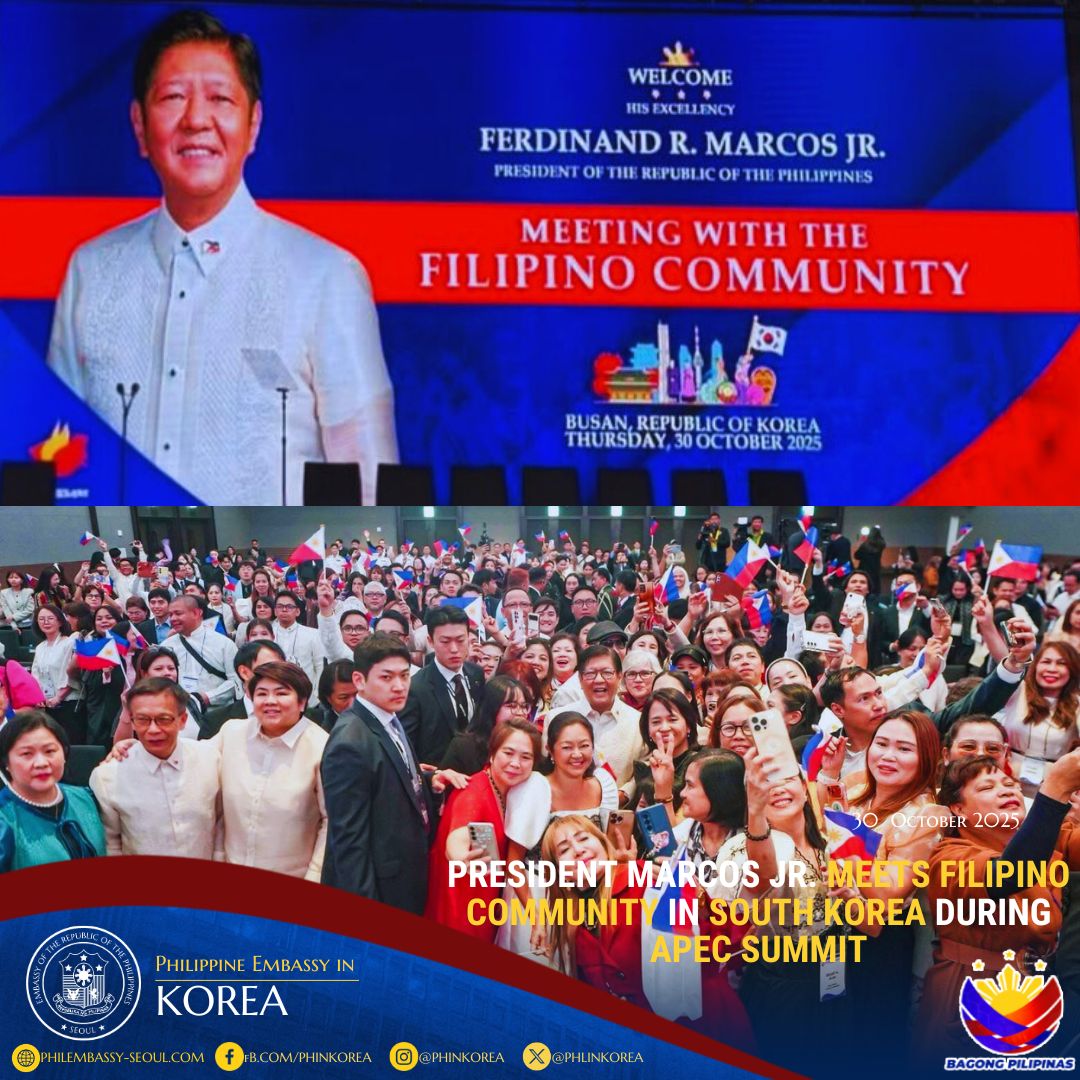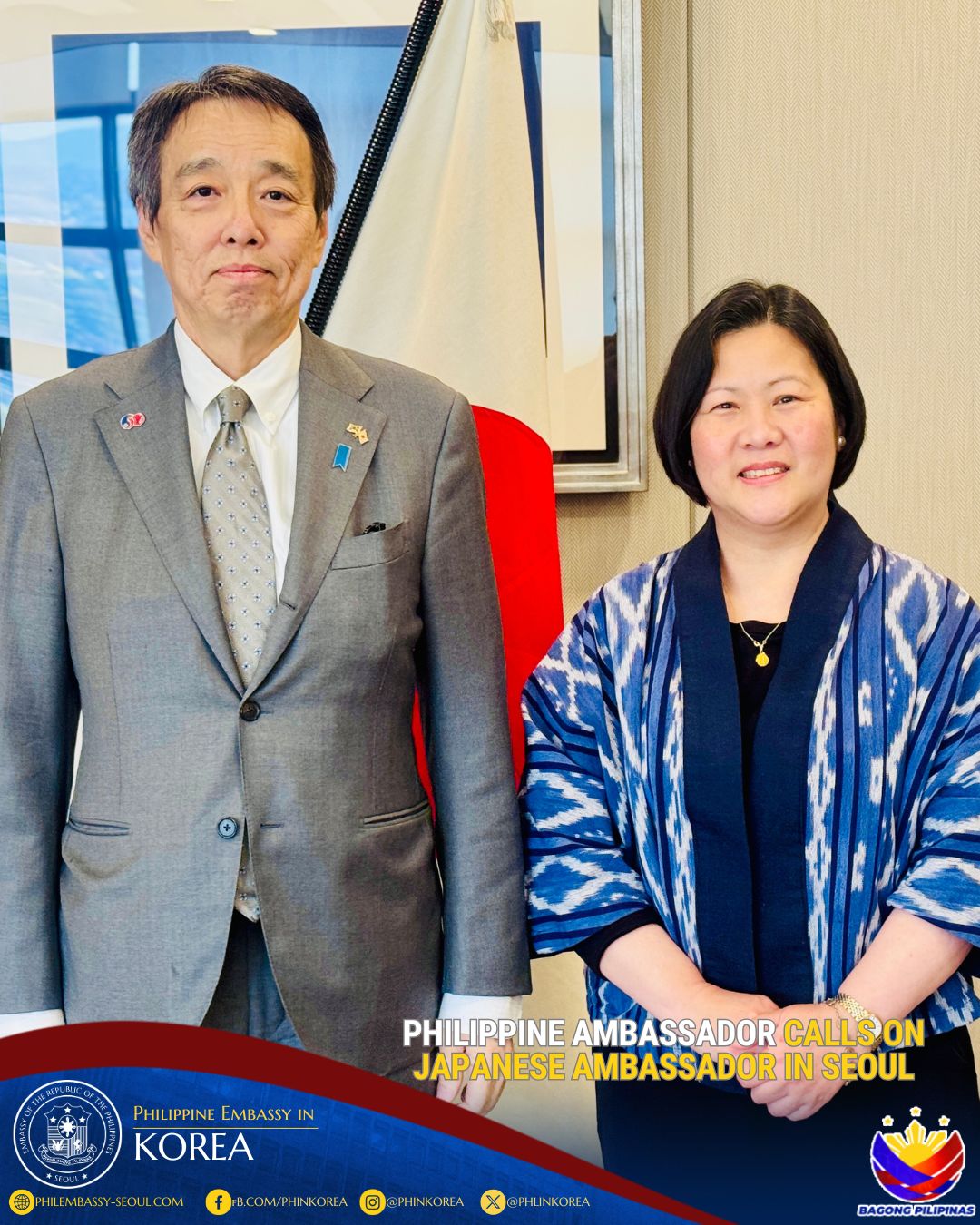Filipinos in Korea Find Challenges, Hope in Global Financial State
Seoul, 26 November – Philippine Ambassador to Seoul Luis T. Cruz reported to the Department that, as the South Korean economy weathers the impact of the current financial crunch, the Philippine Embassy continues to intensify its Financial Education Campaign to help Overseas Filipinos and their families back home deal with the global slowdown.
“The current situation presents an invaluable opportunity for us to underscore the importance of financial education. We need to constantly educate ourselves and our families about the need to save and wisely manage our resources,†said Amb. Cruz during Evaluation Meeting for the Financial Education Campaign held at the Philippine Embassy on November 23. Challenges Filipinos in South Korea are experiencing the difficulties of a volatile exchange rate. Over the last six months, the Korean Won has weakened against the US Dollar by over 50%. As of this writing, the basic exchange rate is KRW1,500 to every dollar, significantly down from approximately KRW940 a few months ago. This means that for foreign workers, the remittances they send to their families have significantly diminished. Another challenge faced by foreign workers, majority of whom are under the government-to-government Employment Permit System (EPS), is the proposal to charge foreign workers the value of food and lodging currently given by small- and medium-scale enterprises for free. If approved, foreign workers risk receiving less as businesses shun additional benefits to cut back on expenses. EPS employers are not mandated by law to provide food and lodging benefits, although by practice around 77% do so. The Ministry of Labor reportedly initiated the proposal primarily to equalize the benefits between a foreign EPS worker and his or her Korean counterpart. In response, the Philippine Embassy, through its Labor Attaché Delmer Cruz, is coordinating with counterparts from other labor-sending countries to lobby against the proposal. During a meeting with officials from the Ministry of Labor last month, the Embassy noted that the provision of accommodation for guest workers is an industry practice accepted among other labor-receiving countries such as in the Middle East, and that its removal would be tantamount to a diminution of benefits. Financial Education Campaign During the Evaluation Meeting, around 30 participants from past Financial Education Campaign seminars took part in an afternoon of workshops designed to assess the effectiveness of the Embassy’s program, in particular whether workers showed a positive change in their behavior towards financial management and whether such attributes were shared with, and practiced by, their families. The results were encouraging. Majority of the participants indicated greater consciousness about saving. Majority also began discussions with their families, who receive the bulk of the workers’ salaries and have control over their disbursement. “It is important to involve the families since the Philippines has among the lowest savings rate in the region,†said Consul Juan E. Dayang, Jr. during the Meeting, adding that according to a study by the International Monetary Fund, many of the families left behind by the overseas workers did not find work of their own, relying merely on the remittances. The participants, however, reported a major stumbling block owing to the current financial crunch. With the exchange rate straining their savings, many recounted having a hard time explaining to their families why the remittances diminished. “This is why financial education is more important than ever,†emphasized Amb. Cruz. One success story imparted during the Meeting was that of Jojo, who decided to put his savings in US Dollars after studying the market earlier this year and projecting an eventual weakening of the Korean Won. His savings are now protected from the steep fluctuation. The participants likewise expressed continued interest in the module on Business Opportunities in the Philippines conducted by Commercial Counselor Edgardo Garcia, who will spearhead a Financial Management Course next year to delve into the particulars of business management, such as bookkeeping, marketing, feasibility studies and entrepreneurship. They later made a pledge, as a group, to continue saving and enhancing their financial literacy. The Embassy started its Financial Education Campaign in March this year and has so far conducted 13 seminars to more than 500 people. The seminar consists of three parts: Financial Literacy, Business Opportunities, and OWWA Services administered by Welfare Officer Esperanza Cobarrubias. The seminar highlights the following ideal behaviors: setting short- and long-term financial goals, saving money regularly, making a written budget for expenses, comparing actual expenses to the budget, paying bills on time, reviewing bills for accuracy, and comparison-shopping before making purchases. The program is unique in that post-test and pre-test surveys are incorporated in the seminars to provide the Embassy an empirical basis for determining its immediate impact. The surveys measure the participant’s knowledge on basic financial concepts such as budgets, savings, compound interest, inflation rate, risk, liquidity and insurance, as well as their inclination to adopt the promoted behaviors. The post-test surveys showed a marked increase in the participants’ scores on the financial test by 47%. The Evaluation Meeting in November affirmed that the participants, who in the surveys expressed receptiveness towards the promoted behaviors, actually assumed a more active approach towards financial management and involved their families in the process.


 November 20, 2025
November 20, 2025
 November 18, 2025
November 18, 2025
 November 17, 2025
November 17, 2025
